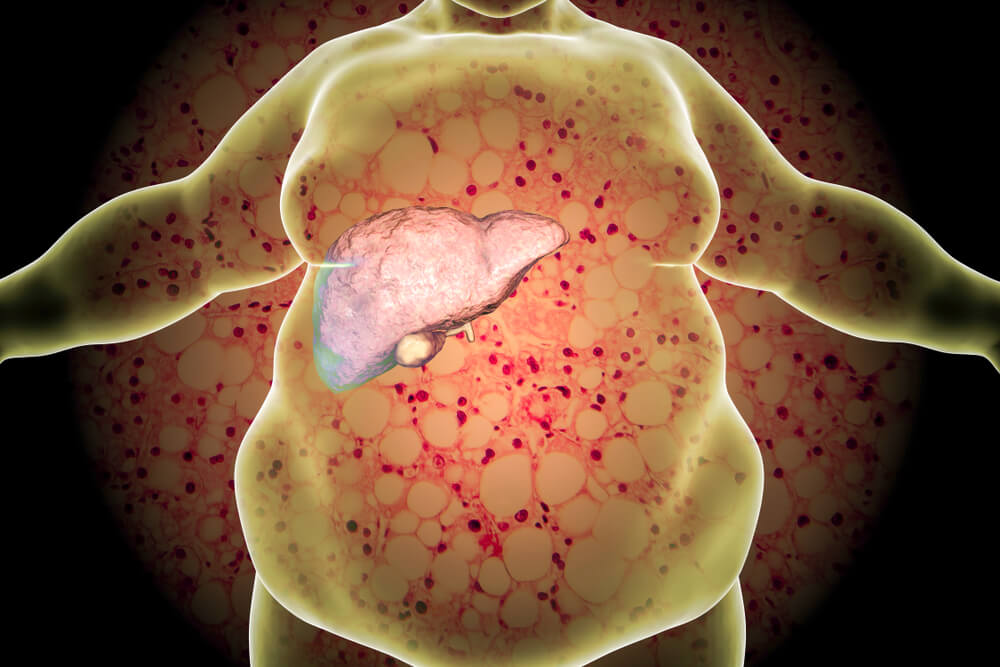
Fatty Liver Disease in Denver, CO
GI conditions affect thousands of people in the United States, and many of those individuals struggle with fatty liver disease. This condition can cause extreme fatigue and make it difficult to go about daily activities. However, treatment is available to minimize symptoms and maximize quality of life. At Rocky Mountain Gastroenterology, we’re committed to offering outstanding fatty liver disease treatment to our Denver, CO patients. Learn more about this condition and the path to diagnosis.
What Is Fatty Liver Disease?
Fatty liver disease occurs when excess fat accumulates in the liver cells. This buildup of fat can be due to numerous factors, including excessive alcohol consumption (alcoholic fatty liver disease) or non-alcohol-related causes (non-alcoholic fatty liver disease). Over time, the disease can cause inflammation and damage to the liver, potentially leading to serious complications. Here’s what to know about the primary fatty liver disease causes:
Alcoholic
Excessive alcohol intake is the most common cause of fatty liver disease. When alcohol is consumed, the liver focuses mainly on converting alcohol to a less toxic form instead of its normal functions. This process can generate harmful substances and result in fat accumulation. Not everyone who consumes alcohol will get fatty liver disease. This diagnosis depends on the amount and frequency of alcohol consumption and other risk factors, such as drinking without eating and binge drinking. Genetic variations, age, and general health status can also influence a patient’s chances of developing this condition.
Non-Alcoholic
Non-alcoholic fatty liver disease (NAFLD) can occur in patients who consume little to no alcohol. This condition is often connected to various lifestyle factors, including eating a diet high in fat, lack of physical activity, and obesity. Metabolic syndromes, including insulin resistance and high blood sugar, are also linked to NAFLD. Other underlying health conditions like hypothyroidism, polycystic ovary syndrome (PCOS), and sleep apnea can further increase the risk of developing this disease. Moreover, certain medications and rapid weight loss might contribute to the accumulation of fat in the liver. Everyone is affected differently due to variations in genetics and overall health.
What Are the Fatty Liver Disease Symptoms?
Unfortunately, fatty liver disease symptoms don’t tend to show themselves in the early stages. However, as the condition progresses, patients often report the following:
- Unexplained fatigue
- Weakness
- Abdominal pain
- Nausea
- Loss of appetite or weight loss
- Mental confusion
- Yellowing skin
- Swelling in the abdomen or legs
How We Narrow Down a Fatty Liver Disease Diagnosis
We use a few different approaches to solidify a fatty liver disease diagnosis. Depending on the patient’s circumstances, we might recommend a blood test to reveal any abnormalities in liver function. We may also order imaging tests, such as ultrasounds, to evaluate the liver’s size. In some cases, we may need to conduct a liver biopsy to examine the tissue and determine the progression of the disease. Once we better understand your condition, we can suggest the best treatment method.
Find the Best Treatment Option for You
Currently, no medications have been proven to be effective fatty liver disease treatments. For most patients, we recommend lifestyle changes to manage their condition. If the condition has progressed too far, we may need to consider surgical interventions, such as a liver transplant. The majority of cases can be managed with the following measures:
- Healthy Diet: Eating a diet high in fruits, vegetables, lean proteins, and whole grains can reduce fat in the liver and keep the disease from progressing.
- Regular Exercise: Being sure to exercise regularly impacts the amount of fat in the liver.
- Weight Loss: Patients with fatty liver disease are encouraged to lose 5 to 10% of their body weight. This level of weight loss has been shown to begin reducing fat in the liver.
- Avoiding Alcohol: Avoiding alcohol is critical, especially for those with alcoholic fatty liver disease. Patients with NAFLD should only consume alcohol in moderation, as discussed with their provider.
- Smoking Cessation: Smoking can exacerbate liver damage, and we encourage patients to cut down on or quit smoking.
Why Prompt Treatment Is Crucial
Without proper management, fatty liver disease can worsen and severely damage the liver. In extreme cases, the condition leads to scarring, cirrhosis, and even cancer. If you suspect fatty liver disease or a similar GI condition, don’t hesitate to contact Rocky Mountain Gastroenterology. We treat a variety of conditions and have years of experience helping people across the Denver Metro Area. Get in touch with us to find an appointment time that works for you.
Go back